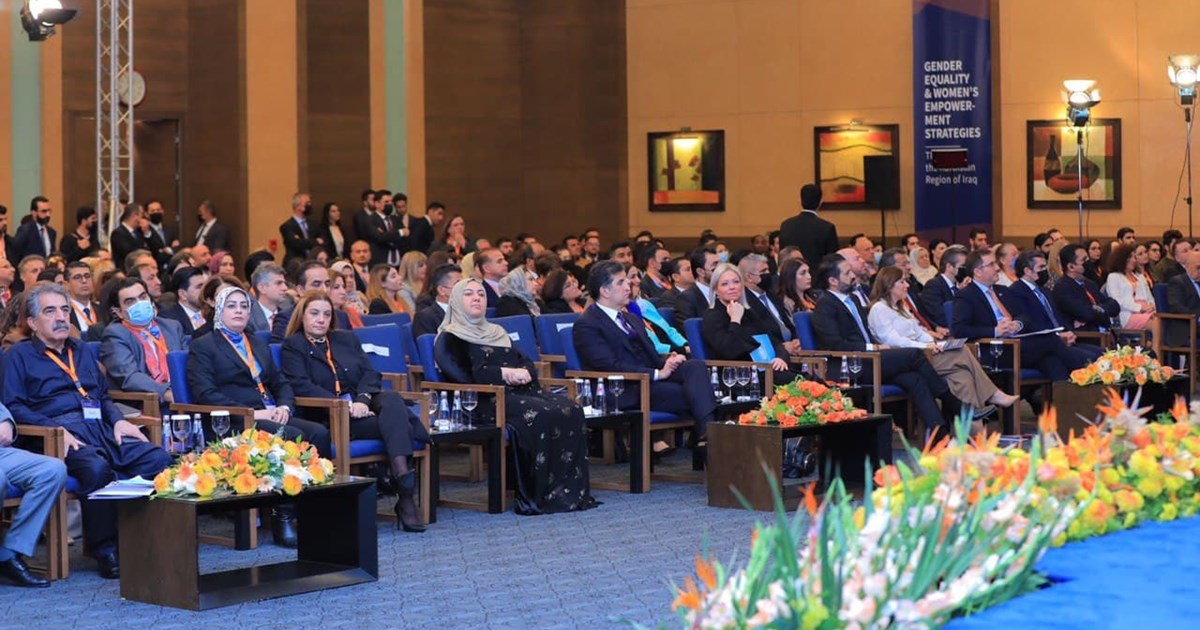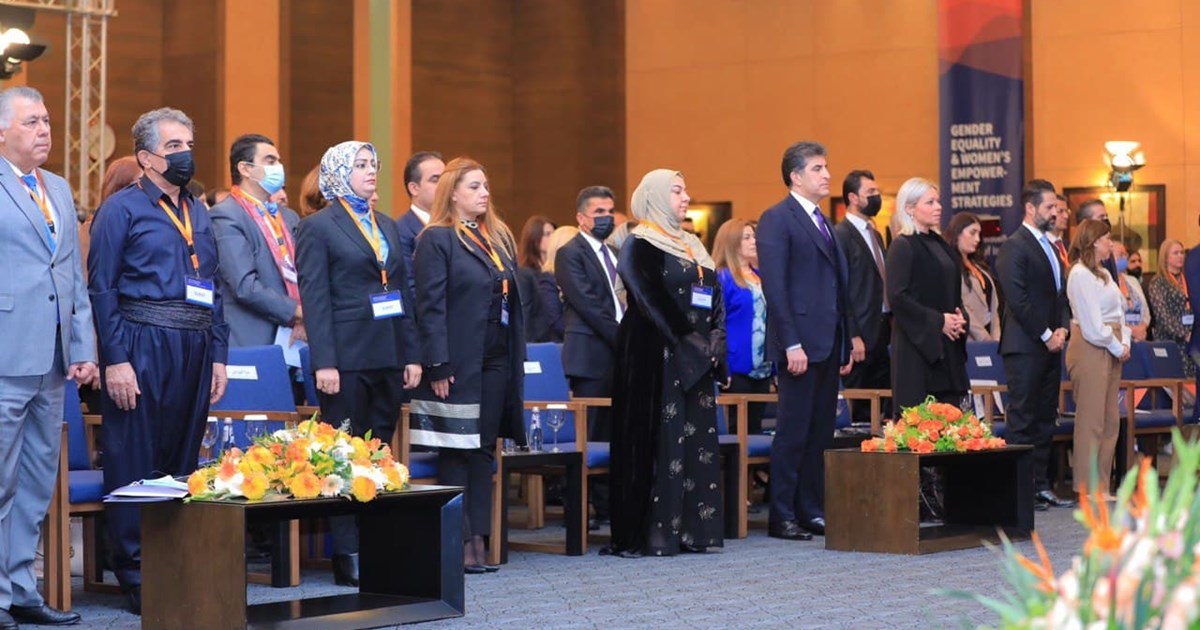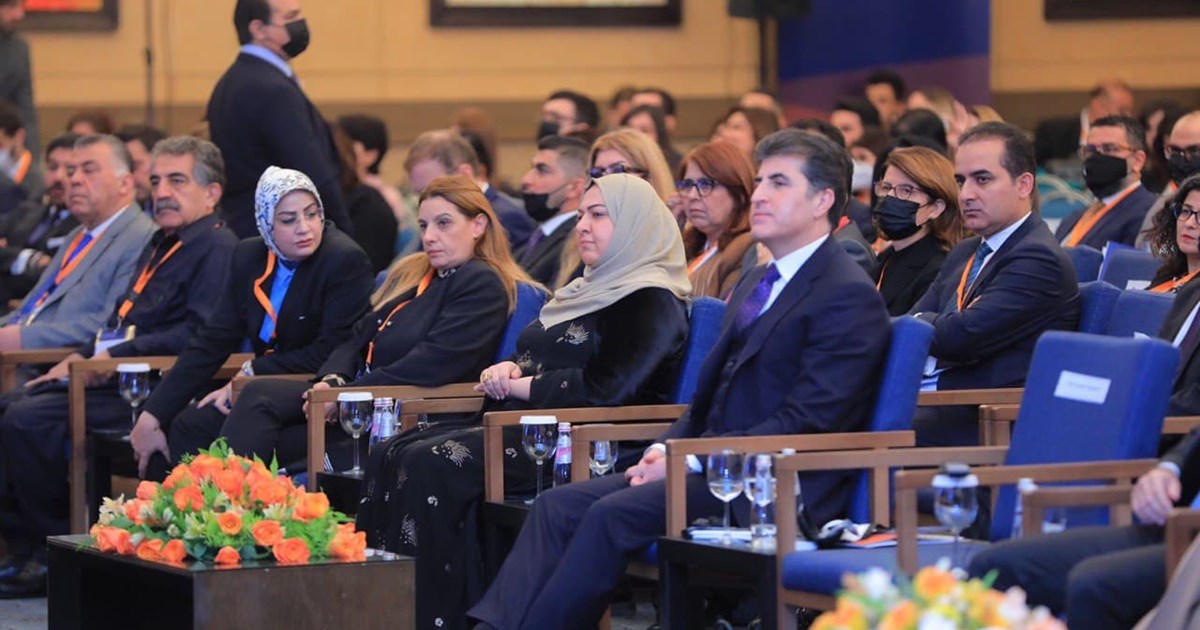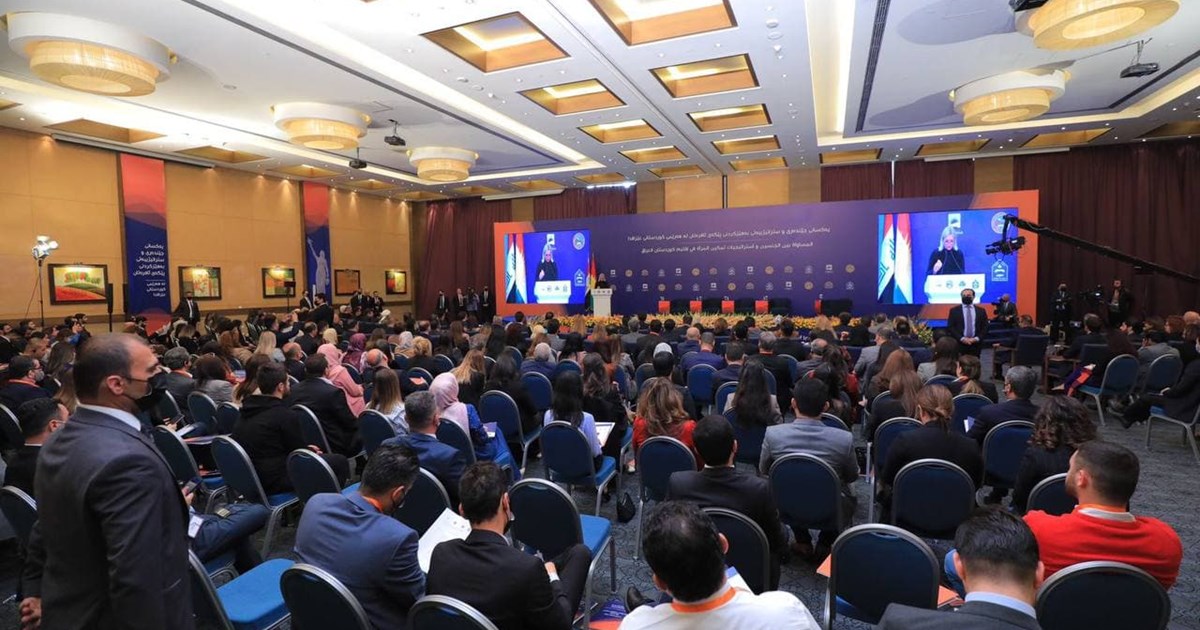Speaker Dr. Rewaz Faiq at conference on gender equality: New bill on combating violence against women will close loopholes
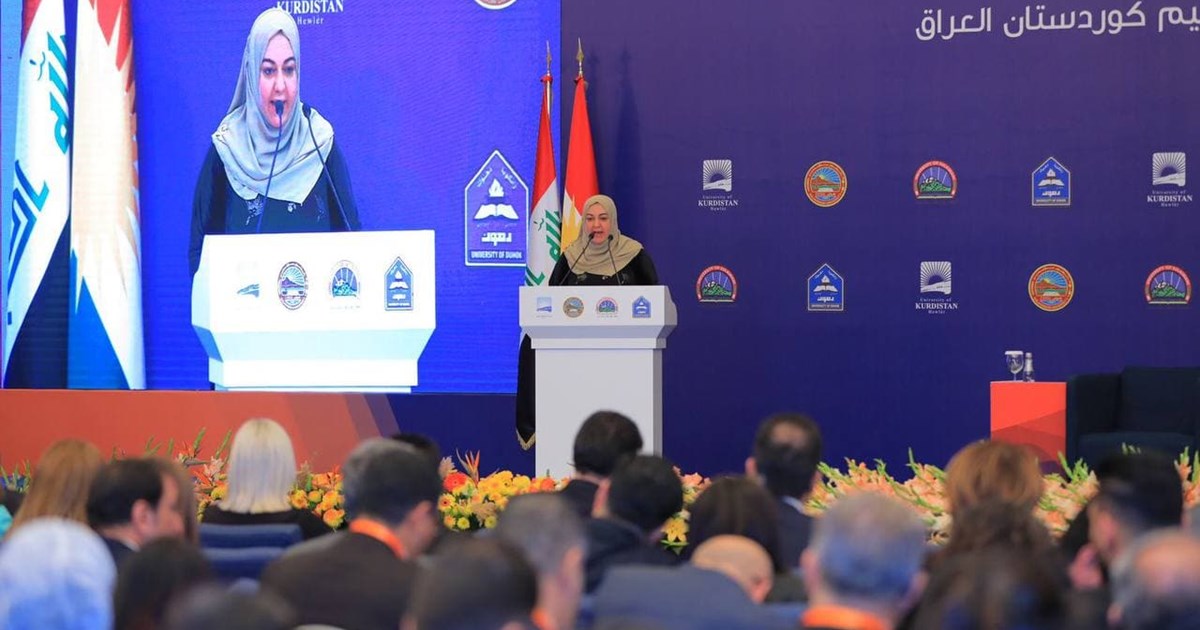
Kurdistan Parliament Speaker Dr. Rewaz Faiq on 28 November 2011 addressed a major conference on Gender Equality and Strategy for Strengthening Women's Position in the Kurdistan Region, organized by the University of Kurdistan-Hawler and universities of Salahaddin, Slemani and Duhok.
Speaker Faiq in her remarks described Kurdistan Parliament’s responsibilities and achievements in supporting women's rights and position, through the passage of legislation and scrutiny of the authorities.
Dr. Faiq said that the conference participants can contribute to improving legislation on protection of women’s rights by making suggestions and recommendations to Parliament, including on a new bill on domestic violence and violence against women, that is currently in passage in Parliament.
The Speaker said, "We in the Kurdistan Parliament, within the limits of our constitutional authority in legislation and scrutiny, are responsible for closing any legislative loopholes on abuses and violence committed against women and girls."
The conference was attended by Kurdistan Region President Nechirvan Barzani, Kurdistan Regional Government (KRG) Deputy Prime Minister Qubad Talabani, UNSG’s Special Representative to Iraq Jeanine Hennis-Plasschaert, Parliament Secretary Muna Kahveci, several MPs, KRG ministers and officials, consuls, academics and civil society organizations.
The following is the text of Dr. Faiq’s speech:
Your Excellency President of the Kurdistan Region, dear guests,
It is a pleasure to meet at such a broad conference organized by the oldest and best universities of Kurdistan, to address this important and sensitive subject of women’s role and position. This important initiative is an academic and scientific effort that can create a solid and stable foundation at most levels for strengthening women's roles and positions, for protecting them from violence and gender discrimination, and for achieving gender equality.
Ladies and Gentlemen,
As we all know, every year scores of awareness-raising activities and campaigns are held in the Kurdistan Region by the official institutions, groups, and NGOs working on women's rights, and this has had some impact on raising individuals’ understanding and awareness of women's issues. The media and journalists have also made efforts to inform society. These efforts, especially the widespread campaigns that are organized annually to eliminate violence, have produced some positive results and progress.
But we must ask: Have these campaigns been able to form a long-term national strategy for strengthening women's rights, especially in terms of eliminating violence? Have we all been able to make all aspects of women’s rights an issue for our society in general, and stop believing in the fallacy of the divide between men and women?
This conference can play an influential role, the projects, suggestions and recommendations of this conference can be put into practice, by using academic research to draft and refine legislation, to define political responsibilities and to refine laws in the Kurdistan Parliament.
Here I will present the current state of women’s rights especially in terms of combating violence against women to the conference, in the hope that it will become a source for teachers and experts on women's rights when they write their research, especially as our experience in our Parliamentary work takes into account the demands of those campaigning for freedom, women's activists and organizations.
Ladies and Gentlemen,
As we know, there have been considerable acts of violence against women - both publicized and unpublicized cases – at the level of individuals, families and communities. The statistics on violence over the past five years are a cause for great concern and have increased year on year. In recent years the form of violence has changed. With technological progress and the increase in the number of [mobile] device users, these devices are a gateway to the world. But these devices have also become tools for acts of violence, and statistics from official institutions confirm that more than 50 percent of cases of violence involve such devices.
Through our continuing efforts to improve the legal environment, on 25 May 2021 at an ordinary sitting in the presence of the ministers for the interior, culture and youth, social affairs, and religious affairs as well as the General Secretary of the High Council of Women’s Affairs, we [Kurdistan Parliament] held lengthy discussions on the problem of violence against women. Parliament’s standing committee concluded that Law no. 8 of 2011, the Law on Combating Domestic Violence has many loopholes, because while over the past 10 years the law has been good compared to Iraq and the wider region, looking at the outcomes of its implementation, it needs to be amended. That's why the Kurdistan Parliament on 23 November 2021 held the first reading of a new Bill, prepared in collaboration with the KRG Interior Ministry.
We ask experts at this conference, based on their scientific and academic expertise, to help Parliament’s standing committee in the writing and drafting of the bill’s details, so that the new law overcomes the obstacles and challenges that the current law, Law No. 8 of 2011, places before the authorities and judiciary.
Within the limits of our constitutional authority in legislation and scrutiny, we in the Kurdistan Parliament are responsible for closing any legislative loopholes on abuses and violence committed against women and girls. Parliament’s standing committees are also responsible for monitoring and enforcing laws that affect women and fall under the responsibility of the Kurdistan Region’s institutions.
Finally, I hope that the essays and research by Kurdistan's universities carried out before on combating violence against women 's violence will be used to develop policies that help to reduce both domestic violence and violence against women.
I wish you all success.
